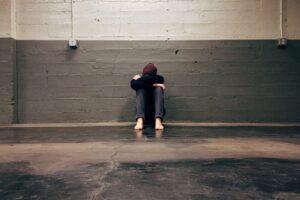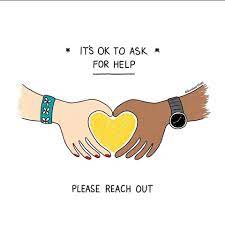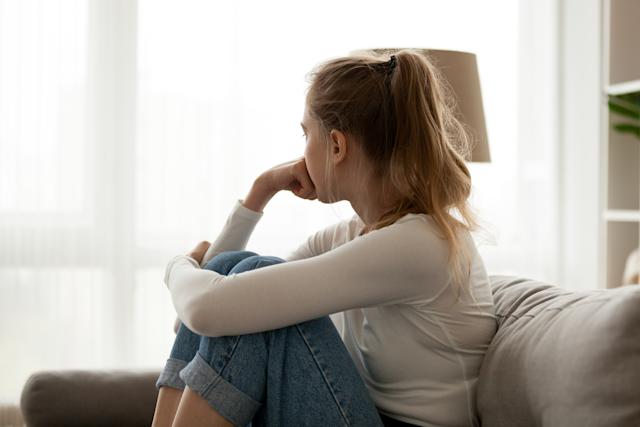There is a well-known connection between loneliness and depression. But what is it about loneliness that can lead to depression? And vice versa – can depression cause loneliness? In this blog post, we will explore the relationship between these two emotions and discuss some of the possible causes and effects. We will also offer some tips for dealing with loneliness and depression.
Contents
- 1 Understanding Loneliness And Depression
- 2 Am I Lonely Or Depressed? How To Identify The Symptoms?
- 3 Are There Any Similarities Between Loneliness And Depression?
- 4 Can Loneliness Lead To Depression?
- 5 How To Cope With Loneliness?
- 6 When To Seek Professional Help?
- 7 What Are The Ways To Treat It?
- 8 Conclusion
Understanding Loneliness And Depression
 Loneliness and depression are two very different things. Loneliness is simply the feeling of being alone, while depression is a serious mental illness that can cause a person to feel hopeless and helpless. While loneliness is not an illness, it can lead to depression in some people.
Loneliness and depression are two very different things. Loneliness is simply the feeling of being alone, while depression is a serious mental illness that can cause a person to feel hopeless and helpless. While loneliness is not an illness, it can lead to depression in some people.
It is usually during our darkest moments that we feel the most alone. When we are going through a tough time, it can be difficult to reach out and connect with others. We may feel like no one understands what we are going through or that no one cares. This is when loneliness can turn into depression.
Moreover, researchers have found that people who are lonely are more likely to suffer from depression. A study published in the journal has found that loneliness is a significant risk factor for developing depression.
The study followed a group of people over the course of six years and found that those who reported feeling lonely were more than twice as likely to develop depression. So, if you are feeling lonely, it is important to reach out and connect with others.
Am I Lonely Or Depressed? How To Identify The Symptoms?
It can be difficult to identify the symptoms of loneliness and depression because they often overlap. However, there are some key differences between the two. Let’s take a closer look:
Loneliness is often described as an unpleasant feeling of emptiness or isolation. It can be triggered by a number of things, such as moving to a new city, the end of a relationship, or the death of a loved one. The symptoms of loneliness are described as:
- Isolated from others
- Like no one understands you
- Like you have no one to talk to
- Feeling like you can’t connect with anyone
On the other hand, depression is a mental illness that is characterized by persistently low mood and loss of interest. However depression does not only affect your mood, it can also lead to physical symptoms such as fatigue and changes in appetite.
Depression is diagnosed when these symptoms last for more than two weeks. The key symptoms of depression are:
- Persistently low mood
- Loss of interest or enjoyment in activities
- Significant weight loss or gain
- Changes in sleep patterns
- Fatigue or low energy
- Feelings of worthlessness or guilt
- Problems with concentration and decision making
- Recurrent thoughts of death or suicide
So, the symptoms are really different from one another. It can be difficult to identify but with the help of these symptoms, you will be able to understand both conditions better. However, both can co-occur and it is important to seek help if you are experiencing any of these symptoms.
If you or someone you know is struggling with loneliness or depression, there are a number of resources available to help.
Are There Any Similarities Between Loneliness And Depression?
 Although there are differences and distinctions between loneliness and depression, there are also some similarities. let’s know more about it.
Although there are differences and distinctions between loneliness and depression, there are also some similarities. let’s know more about it.
Loneliness and depression can both be characterized as feelings of emptiness, sadness, and despair. Both can also lead to physical problems such as insomnia, headaches, and stomachaches. And both loneliness and depression can be triggered by major life changes or transitions, such as the death of a loved one, a divorce, or a move to a new city.
According to one theory, it is believed that both are the result of social isolation. Also, loneliness and depression may be caused by an imbalance in the brain chemicals serotonin and dopamine.
So, the causes are similar in many ways that create confusion between the two. But you should understand that loneliness and depression are distinct emotions. Loneliness is a feeling of being isolated or alone, even when surrounded by other people. While depression is a mental disorder. So, it is important to seek professional help if you are feeling depressed.
Can Loneliness Lead To Depression?
There are many factors that can contribute to the development of depression. One factor that is often overlooked is loneliness. Loneliness is not necessarily about being physically alone, but rather about feeling disconnected from others. But can loneliness actually lead to depression? There are some reasons why loneliness can lead to depression.
One reason is that loneliness can cause a person to ruminate on negative thoughts. This means that they dwell on their problems and worries instead of finding ways to solve them. This can lead to a spiral of negative thinking that can be hard to break out of.
Another reason is that loneliness can lead to social isolation. When a person feels disconnected from others, they may start to withdraw from social activities. This can lead to a decrease in positive social interactions and an increase in negative ones.
Finally, loneliness can lead to changes in sleep and eating patterns. These changes can be both physical and mental. For example, a person who is lonely may start to sleep more or less than usual. These changes can lead to a decrease in energy and an overall feeling of fatigue.
So, yes it is really possible that loneliness can lead to depression. If you are feeling lonely, you need to understand that it is a real feeling and that it can have a real impact on your mental health. Don’t hesitate to reach out to others for support.
How To Cope With Loneliness?
 Coping with loneliness is not easy, but it is possible. There are a number of things you can do to ease the loneliness and make the most of your situation. Here are a few tips:
Coping with loneliness is not easy, but it is possible. There are a number of things you can do to ease the loneliness and make the most of your situation. Here are a few tips:
Focus on positive relationships
When you are feeling lonely, take time to focus on the positive relationships in your life. Spend time with friends and loved ones, and let them know how much they mean to you. It is important to find positive social outlets, so you don’t dwell on the negative aspects of your life. For example, if you are feeling lonely at work, try to find a colleague to have lunch with or join an after-work activity.
Connect with others
This can be difficult if you’re feeling shy or down, but there are plenty of ways to reach out and make friends. You can join social clubs or groups, take classes, or volunteer. There are also many online communities that can help you connect with others who share your interests. Also, don’t be afraid to reach out to people you know. Even if you don’t see them often, a quick phone call or email can brighten your day and make you feel less alone.
Do things you enjoy
It is important to find activities that make you happy and fulfilled. Doing things you enjoy will help take your mind off of your loneliness and make you feel better about yourself. If you’re not sure what you like to do, try exploring different hobbies and activities until you find something that feels right for you. It is one of the self-care activities you can do to ease your loneliness.
Practice gratitude
If you are lonely because of social media, it is time for you to focus on the good things in your life. Be grateful for the people and things you have. This will help shift your focus from what you don’t have to what you do have. In fact, gratitude and helping others are two things that can help reduce loneliness. For example, you can volunteer your time to help others, or simply express gratitude to the people in your life.
Reach out for help
 If you are struggling with loneliness, don’t be afraid to ask for help. There are many resources available to help you cope with this difficult emotion. Talk to your doctor or a mental health professional if you need someone to talk to. You can also find support groups or online forums where you can share your experiences and connect with others who understand what you are going through.
If you are struggling with loneliness, don’t be afraid to ask for help. There are many resources available to help you cope with this difficult emotion. Talk to your doctor or a mental health professional if you need someone to talk to. You can also find support groups or online forums where you can share your experiences and connect with others who understand what you are going through.
Loneliness is a difficult emotion to deal with, but it is important to remember that you are not alone. There are many people who feel the same way, and there are plenty of resources available to help you cope. With time and effort, you can overcome loneliness and build a life that is rich and fulfilling.
When To Seek Professional Help?
As we have discussed that loneliness can actually lead to depression. So, when should you seek professional help? If you’re feeling depressed and lonely, it’s important to reach out for help. Don’t wait until the situation feels hopeless. Here are some warning signs to reach out for professional help:
- Drinking alcohol or using drugs to cope
- Withdrawing from friends and activities
- Feeling hopeless, helpless, or worthless
- Unable to concentrate or make decisions
- Changes in eating or sleeping habits
- Aches, pains, or gastrointestinal problems that don’t respond to treatment
- Thoughts of self-harm and suicide
These warning signs are just a starting point. If you’re not sure whether you’re depressed but something feels off, it’s better to err on the side of caution and seek professional help. Depression is a treatable condition, so don’t hesitate to reach out for help if you’re feeling lost and alone.
Moreover, it is always better to talk to someone before the situation gets worse. If you think you might be depressed, or if loneliness is affecting your day-to-day life, reach out to a friend, family member, therapist, or doctor. These people can offer support and resources to help you feel better.
What Are The Ways To Treat It?
There are many ways that people can treat depression. These include:
Therapy
 It is important for people to talk to someone about their depression. This can help them understand their feelings and work through them. Therapy can help people learn how to cope with their depression and make positive changes in their lives. More often, this technique is used to complement other treatments, such as medication.
It is important for people to talk to someone about their depression. This can help them understand their feelings and work through them. Therapy can help people learn how to cope with their depression and make positive changes in their lives. More often, this technique is used to complement other treatments, such as medication.
There are several types of therapy that can be used to treat depression. These include:
- Cognitive-behavioral therapy (CBT)
- Interpersonal therapy (IPT)
- Dialectical behavioral therapy (DBT)
These are some common and widely used therapies to treat depression. You should talk to your doctor or therapist to find out which one would be best for you.
Medication
For some people, medication is an important part of treatment. Antidepressants can help relieve the symptoms of loneliness by correcting chemical imbalances in the brain. If you think medication might be right for you, talk to your doctor about your options. However, some of the examples are listed below:
- Tricyclic antidepressants: amitriptyline (Elavil), desipramine (Norpramin), doxepin (Sinequan), imipramine (Tofranil)
- Monoamine oxidase inhibitors: isocarboxazid (Marplan), phenelzine (Nardil), selegiline (Eldepryl, Zelapar), tranylcypromine (Parnate)
- Selective serotonin reuptake inhibitors: citalopram (Celexa), fluoxetine (Prozac, Sarafem), paroxetine (Paxil), sertraline (Zoloft)
- Serotonin and norepinephrine reuptake inhibitors: duloxetine (Cymbalta), venlafaxine (Effexor XR)
Also, it is important to note that some of the medications used to treat depression can cause weight gain. So be sure to talk to your doctor about any concerns you have.
Lifestyle changes
This is something that is important for everyone, but it is especially important for those who are struggling with loneliness and depression. There are a few lifestyle changes that can help to improve your mood and make you feel more connected to others.
- Exercise: This is one of the most effective things you can do for your mental health. Exercise releases endorphins, which have mood-boosting effects. It also helps to reduce stress and anxiety.
- Eat a healthy diet: Eating a healthy diet can improve your mood and energy levels. Make sure to eat plenty of fruits, vegetables, whole grains, and lean protein.
- Get enough sleep: Sleep is crucial for mental health. Most adults need between seven and eight hours of sleep per night.
- Connect with others: Spend time with family and friends, join a club or group, or volunteer in your community.
- Practice relaxation techniques: There are a number of relaxation techniques that can help to reduce stress and improve mood. These include yoga, meditation, and deep breathing exercises.
Treatment for loneliness and depression can vary depending on the person. It is important to find what works best for you. If you are struggling with loneliness and depression, it is important to seek help from a mental health professional. There are many effective treatments available that can help you to feel better. Don’t hesitate to reach out for help.
Support groups
Support groups are a great way to connect with others who are dealing with similar issues. These groups can provide support, understanding, and friendship. There are many different types of support groups available. You can find one that meets your needs and interests.
There are types of support groups that are focused on specific issues, such as depression, anxiety, or addiction. There are also groups that are open to anyone who wants to join. You can find support groups through your local community center, hospital, or mental health clinic. You can also search online for a group in your area.
Herbal remedies
 This is a natural way to improve your mood and reduce stress. Some of the most popular herbal remedies for depression include:
This is a natural way to improve your mood and reduce stress. Some of the most popular herbal remedies for depression include:
St. John’s wort: This herb is often used to treat mild to moderate depression. It is thought to work by increasing levels of serotonin in the brain.
Saw palmetto: This herb is commonly used to treat anxiety and depression. It is thought to work by reducing inflammation and balancing hormones.
Ginkgo biloba: This herb is often used to improve cognitive function and mental health. It is thought to work by increasing blood flow to the brain.
Kava kava: It is commonly used to treat anxiety and insomnia. It is thought to work by reducing stress and anxiety.
Chamomile: This herb is often used to treat anxiety and insomnia. It is thought to work by reducing muscle tension and promoting relaxation.
These are just a few of the many herbal remedies that are available for depression. Talk to your doctor about whether or not an herbal remedy may be right for you. In fact, these options are gaining popularity as more and more people are searching for natural ways to improve their mental health.
Acupuncture
This is a form of traditional Chinese medicine that involves inserting thin needles into the skin at specific points on the body. It is thought to work by stimulating the nervous system and releasing endorphins. Acupuncture is often used to treat pain, but it is also thought to be effective for depression.
A study has found that acupuncture was effective in treating depression. As it works by releasing endorphins, it can help to improve mood and reduce stress. If you are interested in acupuncture, talk to your doctor about whether or not it is right for you.
These are just a few of the many different treatments that are available for loneliness and depression. It is important to find what works best for you. Each person will respond differently to each treatment option. A mental health professional can definitely help you to find the best treatment for your needs.
Don’t hesitate to reach out for help if you are struggling. There is no shame in seeking help for mental health issues. Remember, loneliness and depression are two very different things and require professional help.
Conclusion
Conclusively loneliness and depression are jointly linked, they either exist together or as a result of each other. The individual suffering from depression is most likely to experience feelings of loneliness and vice versa. It is essential that if you are feeling lonely, you do not hesitate to reach out and seek help because there are people who care about you and want to help.
For more information, please contact MantraCare. Depression is a mental illness characterized by persistent feelings of sadness, hopelessness, and loss of interest in daily activities. If you have any queries regarding Online Depression Counseling experienced therapists at MantraCare can help: Book a trial Depression Therapy session


